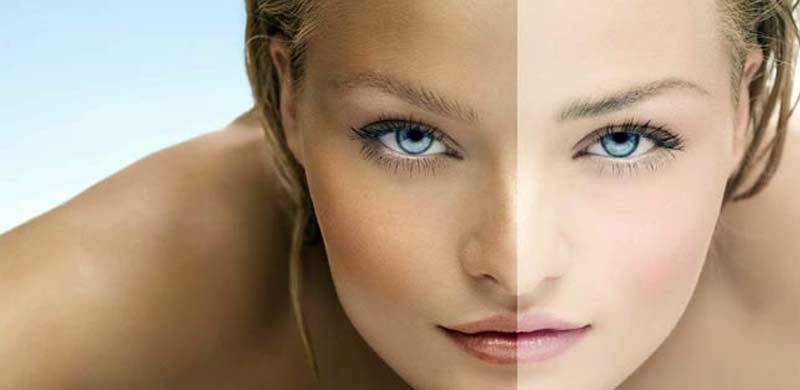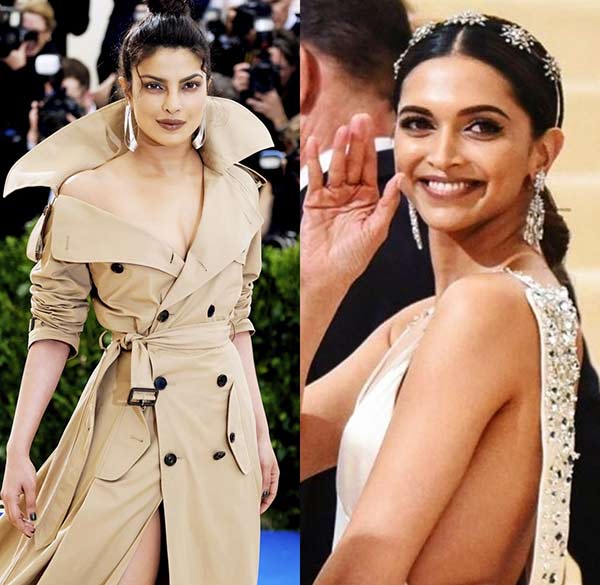
A huge part of what constitutes the definition of beauty in the subcontinent is the fair skin colour. Hence people, particularly girls and women, who do not make it to the category according to this definition of beauty are straight away rejected, if not explicitly, then impliedly.
Knowing a few gorgeous girls having dusky skin tones exposed me to some of the uglier faces of our culture and society. People do not hesitate while naming, shaming and judging girls who have dusky skin tones as compared to the fair-skinned fairies.
It’s awful how our society has been consistently discouraging a specific identity (if it can be called that). Mothers and aunts are so quick to suggest totkas (home remedies) and creams to get a fair complexion even if the girl is not interested and has never asked for them. They think that it is mandatory for all to have fair skin colour and God has given them the responsibility to modify those who are not born so. Beauty salons, spas and even doctors are available to treat you and just transform you from black to white as if your dark skin is a disease.
'Kaali' is considered a swear word for girls and warrants instant rejection being something “unacceptable”, “dirty” and “ought to be mended”.
Once during an informal discussion on dark skin colour I said:
"Dark Skin se farq kya parta hai? Mujhy samaj nahi ata k agar apka skin colour dark hai to kya hota hai is se?"
(What difference does having a dark skin colour make? I do not understand what would happen if you got a dark skin colour?)
And then, what the person next to me, of course a learned fellow, said left me in utter shock:
"Hona kya hai. Is tarah to aap poora saal na nahao to kya hona hai? Hona to kuch nahi. Gandgi saaf na karo to kya hona hai? Kuch bhi nahi. Lekin iska ye matlab to nahi k ap saaf suthray rehna chor do."
(What would really happen? What would really happen if you do not take bath for a whole year? Nothing! What would really happen if you do not clean the dirt? Nothing. But that does not mean you stop cleaning yourself!)
Meaning thereby that he compared dark skin tone with dirt and considered it something to be "cleaned". This argument, besides being absolutely flawed, reflects the real picture of how we see the dark skin colour.
But why is this so? Is this an aftermath of British colonialism? Back in colonial days, the fair skinned people or goras were superior or the ruling class. Is this some sense of superiority or being better that is associated with fair skin colour coming from there?
Or the aunts who have chalked out the image of an ideal bahu being fair skinned eventually bearing fair grandchildren to them and contributing to create yet another NAYA, GORA Pakistan! Or are these the employers who demand presentable females employees and by presentable they mean fair skinned, slim, fairly tall, young girls even with below average common sense!
We need to really think where it came from and why it continues to ruin the self-confidence, self- esteem and dignity of the people who are born with dusky skin tones.

Cosmetic companies are earning in trillions by capitalising on the dark skin complex in the Indian subcontinent. In my opinion, these companies should also be brought to task for promoting the narrative of fair being the lovely. Not only this, they should be held legally accountable for violation of human rights and infringing on the dignity of people with dark skin tones by labelling them and discouraging their natural makeup.
The idea of beauty is vast and relative. It varies from person to person and cannot be measured on a strict scale. Why restrict it with setting benchmarks? It is high time we reconsidered the idea of beauty. We need to separate the phenomenon of being beautiful or lovely from being white.
Knowing a few gorgeous girls having dusky skin tones exposed me to some of the uglier faces of our culture and society. People do not hesitate while naming, shaming and judging girls who have dusky skin tones as compared to the fair-skinned fairies.
It’s awful how our society has been consistently discouraging a specific identity (if it can be called that). Mothers and aunts are so quick to suggest totkas (home remedies) and creams to get a fair complexion even if the girl is not interested and has never asked for them. They think that it is mandatory for all to have fair skin colour and God has given them the responsibility to modify those who are not born so. Beauty salons, spas and even doctors are available to treat you and just transform you from black to white as if your dark skin is a disease.
'Kaali' is considered a swear word for girls and warrants instant rejection being something “unacceptable”, “dirty” and “ought to be mended”.
Once during an informal discussion on dark skin colour I said:
"Dark Skin se farq kya parta hai? Mujhy samaj nahi ata k agar apka skin colour dark hai to kya hota hai is se?"
(What difference does having a dark skin colour make? I do not understand what would happen if you got a dark skin colour?)
And then, what the person next to me, of course a learned fellow, said left me in utter shock:
"Hona kya hai. Is tarah to aap poora saal na nahao to kya hona hai? Hona to kuch nahi. Gandgi saaf na karo to kya hona hai? Kuch bhi nahi. Lekin iska ye matlab to nahi k ap saaf suthray rehna chor do."
(What would really happen? What would really happen if you do not take bath for a whole year? Nothing! What would really happen if you do not clean the dirt? Nothing. But that does not mean you stop cleaning yourself!)
Meaning thereby that he compared dark skin tone with dirt and considered it something to be "cleaned". This argument, besides being absolutely flawed, reflects the real picture of how we see the dark skin colour.
But why is this so? Is this an aftermath of British colonialism? Back in colonial days, the fair skinned people or goras were superior or the ruling class. Is this some sense of superiority or being better that is associated with fair skin colour coming from there?
Or the aunts who have chalked out the image of an ideal bahu being fair skinned eventually bearing fair grandchildren to them and contributing to create yet another NAYA, GORA Pakistan! Or are these the employers who demand presentable females employees and by presentable they mean fair skinned, slim, fairly tall, young girls even with below average common sense!
We need to really think where it came from and why it continues to ruin the self-confidence, self- esteem and dignity of the people who are born with dusky skin tones.

Cosmetic companies are earning in trillions by capitalising on the dark skin complex in the Indian subcontinent. In my opinion, these companies should also be brought to task for promoting the narrative of fair being the lovely. Not only this, they should be held legally accountable for violation of human rights and infringing on the dignity of people with dark skin tones by labelling them and discouraging their natural makeup.
The idea of beauty is vast and relative. It varies from person to person and cannot be measured on a strict scale. Why restrict it with setting benchmarks? It is high time we reconsidered the idea of beauty. We need to separate the phenomenon of being beautiful or lovely from being white.
